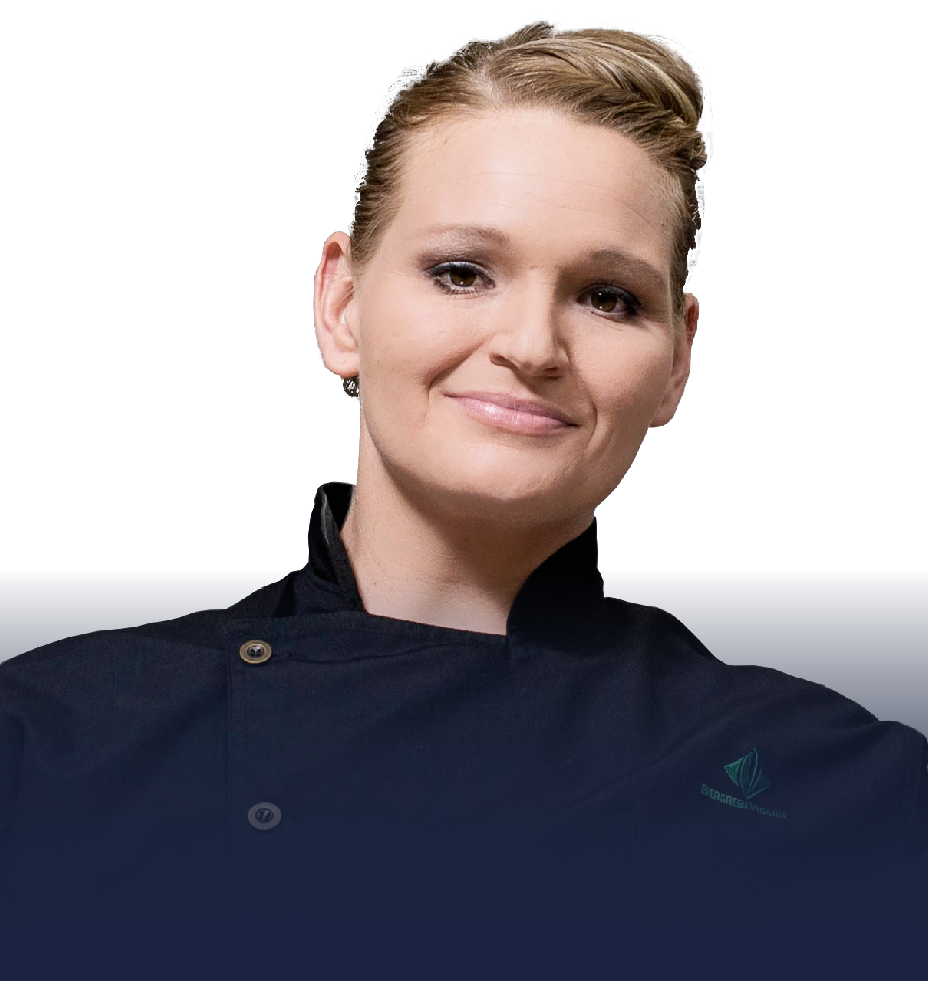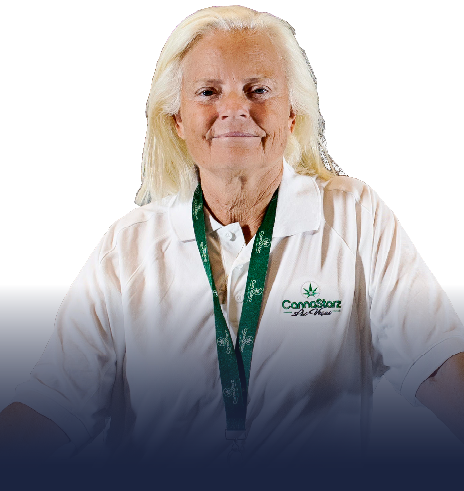The cannabis industry employs more people every year, and as new states and global regions continue to legalize forms of the plant, …
5-Course Essentials Bundle
Get everything you need
| Learn online$450$270 |
| valued at $450 |
Learn from industry experts |
|
Online courses |
|
On-demand |
5-course essentials bundle
Cultivation, Dispensary, Production, Compliance, and Career
Introduction
In this 5-course bundle package, you’ll get all the training from these courses:
- Cultivation Essentials
- Dispensary Essentials
- Production Essentials
- Compliance Essentials (for your state)
- Cultivating your Career Essentials
You’ll save 40% when bundling these courses, over purchasing each one separately. Each of these courses are $90, that’s a total value of $450!
Included in this course
Cultivation
- Introduction to cultivation facilities
- Let’s talk plants!
- Pest control
- Personal protection equipment
- Trimming
- Order fulfillment
- Lab testing
See additional details on the Cultivation course page
Dispensary
- Customer Experience
- Working at a Dispensary
- Delivery dispatch and intake
- Security and safety
- Management/Administration
See additional details on the Dispensary course page
Production
- Working at a Production Facility
- Production Facility requirements
- Cannabinoids and terpenes for Production Agents
- Lab safety and PPE
- Extraction methods
- Lab testing
- Packaging, labeling, and advertising
- Transporting
See additional details on the Production course page
Compliance
- Know your state
- Employee requirements
- Facility requirements
- Lab testing
- Packaging, labeling, and advertising
- Transporting
See additional details on the Compliance course page
Career
- What to expect
- What cannabis companies are looking for
- Planning your career move
- Traps to avoid
- A successful transition
See additional details on the Cultivating your Career course page

Ready to jump start your career?
On demand
Certification
Compliance
GET WOLRD CLASS KNOWLEDGE AND INSIGHT FROM THE INDUSTRIES’ BEST PROFESSIONALS
What will I learn?
We’ll give you the knowledge and tools to start your career in the cannabis industry.
WE WILL HELP GET YOU INTO THE INDUSTRY
AND KEEP YOU THERE
Top Stories
Employers are looking for candidates with a specialized cannabis education. The cannabis industry is growing rapidly and competition for jobs is fierce. …
Growing and harvesting cannabis is a long process that requires a great deal of attention to detail and experience to succeed. But …
Frequently asked questions
MASTER YOUR MINDSET: PETER DIAMADIS
Master Your Mindset Series (#7)
Think and Grow Rich – Peter Diamadis, My Imaginary Board Member #2
From the time I was around six years old, I wanted to do two things: go to space and figure out how to stop the aging process. I was obsessed with the thought of both. I knew our species should be interstellar and that there was a way to live forever. Growing up with such different beliefs than other kids and even most adults made the kind of conversations I liked to have mostly disheartening.
All that began to change shortly after college. The Internet had become a thing. I liked the chat rooms and ended up meeting a social networking volunteer for Michio Kaku, a well-known quantum physicist, who had written a couple of books I massively enjoyed. During one of our conversations, I shared my beliefs about how dumbfounding I found that humans just accept death without vigorously trying to slow it and eventually stop it. He told me there were a few people he knew of who not only agree but who are being very vocal about how and when it will happen.
Through the documentary, Transcendent Man, which was just in the process of being produced and would be released a year or two later, he introduced me to two of my now-favorite people: Ray Kurzweil and Pieter Diamandis, co-founders of Singularity University. Both are graduates of MIT.
It felt like forever waiting for the release. I felt euphoric the day I could finally see it! I watched the documentary three times in a row. I felt connected to Ray and Peter in a way I had never related to anyone, thanks to their love of space, longevity, science, and technology and for their purpose of bringing people together to tackle world problems or limitations and figure out solutions. They are futurists!
Peter Diamandis was inspired by the story of the Orteig Prize which was a competition to award $25,000 to the first person to complete non-stop air travel between New York and Paris. This competition provoked the public to the initiative of developing this technology. Peter started XPrize and offered up to $10,000,000 to the first privately-financed team to build a spaceship—and it worked! But only because Peter never gave up on his “moonshot” endeavor.
Peter had to raise the $10,000,000 to fund the prize and he endured A LOT of rejection. Most people wouldn’t have the mindset to keep going but he did and now, thanks to his vision and persistence, the world has XPrize! Richard Branson (who also might be on my imaginary board of directors) later joined forces with SpaceShipOne for Virgin Galactic. I’ve included a picture of me with Virgin Galactic.
I first met Peter at the 10-year anniversary of the private space flight at Denis Titto’s estate in Southern California. There I also met Steven Hawking’s daughter, Lucy. All of a sudden, I was around the kind of people I loved learning from. Shortly thereafter, Peter released a book How to Make a Spaceship and I entered a contest of who could sell the most books to spend the day with him. I came in 5th place, but I still got to spend the day with Peter who without any irony has a podcast called Moonshot Mindset. I donated the books, which chronicle Peter’s life chasing his dreams, to the business department at UNLV to help inspire up-and-coming business leaders and entrepreneurs.
In my imaginary board meetings, I ask Peter to keep me inspired on using the exponential mindset to take my business endeavors 10x (1000% increase) – the moonshot. It works, I am always pushing the limits and every time I accomplish a big goal, I already have two new ones to get me to the next level.
Who would be on your imaginary board of directors? Share in the comments.
HOW TO PREPARE FOR YOUR FIRST CANNABIS INDUSTRY INTERVIEW
Preparing for a job interview is always an intense and somewhat-intimidating task, and when that job happens to be in the cannabis industry, you may feel even more at a loss when it comes to feeling ready to take on the experience with gusto.
Whether you’re going for an entry-level position in the industry or are an executive-level professional looking to transfer your hard-earned skills into cannabis, prepping for an interview in an industry that has been illegal for decades can feel strange and surreal, so it’s important to feel as confident in yourself, your skills, and your knowledge of the industry as possible.
Of course, you can’t go wrong with the STAR interview method (a structured approach to interview response that involves describing the situation, task, action, and result in each of your answers), but there are a few other more industry-specific things to keep in mind when getting ready for a cannabis industry job interview.
CANNABIS INTERVIEW QUESTIONS
For any job interview you’re going on, it’s essential to be prepared for the basics at the bare minimum. Most interviewers will begin the process with general questions about you, your education or work experience, and why you’re interested in the role.
And for cannabis, these questions will probably be a bit more tailored to the plant and its unique world. Here are a few questions that may come your way as a cannabis industry job applicant:
Do you have any cannabis education, training, or certifications?
This sort of industry background won’t always be required, especially depending on what role you’re going for, but in general, it helps to have at least a basic education on cannabis under your belt.
Online courses and certifications are available for this purpose, and you may want to familiarize yourself in this manner to stand out amongst other applicants.
Can you tell me about your relationship with cannabis?
Recruiters won’t directly ask if you consume cannabis, and while that’s not a requirement to find a job, sharing your experience with or interest in the plant is always important.
Cannabis is a young industry filled with passionate people, and joining the industry typically requires you to demonstrate how you share the same passion.
Why do you want to work at a cannabis dispensary (or another role)?
This is a question that every interviewee has been asked at some point, no matter the industry or position. But for cannabis specifically, don’t be afraid to dig deep. Are you passionate about legalization? Has someone close to you been a victim of the War on Drugs? Are you interested in helping medical patients, or just learning more about the plant for your own benefit? Figure out what it is that drew you to cannabis in the first place, and be open about that.
How do you recommend edible dosing to someone who’s new to cannabis?
This is a more specific question about cannabis, and while you may not be asked this exact one, your interviewer might throw something that requires a basic plant education into the mix to see how you respond. For this reason, it’s a great idea to educate yourself on the plant before diving into the interview process.
BEHAVIORAL QUESTIONS
As you delve deeper into the interview, your interviewer will begin to ask more specific questions to figure out what type of person and employee you might be.
One such category they might broach is behavioral: a.k.a., questions that are usually non-technical and instead focus entirely on you and what kind of person you are.
Here are a couple of questions that might come your way:
Describe a time when you did not meet the customer’s expectations, how did you attempt to resolve the issue?
No one is perfect, and your interviewer knows that. These questions can feel like a trick at first, but it’s okay to admit that you’ve made a mistake in the past. It’s how you overcame it that matters, so try to have an example of a work mishap ready and, more importantly, be able to highlight what you did to resolve the issue, move past it, and prevent it from happening again in the future.
Can you tell me about a time when your employer or team underwent a lot of change, and how did you deal with it?
Change is constant in the cannabis industry, so it’s important to show that you’re a resilient, flexible, and adaptable person in the workplace. Otherwise, cannabis probably isn’t the industry for you.
COMMUNICATION QUESTIONS
Communication interview questions work to explore just that: how you communicate. With your superiors, your fellow coworkers, and most importantly, yourself.
Here are a couple of questions your interviewer might ask in this arena:
How would your coworkers describe your personality?
Now’s your time to shine – a.k.a., subtly brag about what a pleasure you are to work with, from communication style and communication frequency to troubleshooting and networking.
Have you ever had difficulty working with a manager?
Again, this can feel like a trick question, but it’s perfectly fine to be honest about the fact that you haven’t gotten along with a manager in the past (if that’s the case). If so, it’s important to highlight what the issues were, how you worked to resolve them, and what you’re hoping to avoid in the future.
OPINION QUESTIONS
Opinion interview questions are typically focused on situations, helping your possible future employer understand how you react, what your preferred work style is, and if you’re going to fit in with the company’s ethos and environment.
What’s been your biggest professional success?
This question is less about what your biggest success is and more about how you discuss it. Your answer will help your interviewer determine what your bar for success looks like, how you talk about yourself and your fellow coworkers, whether or not you’re a team player, and much more.
Where do you see the industry in 10 years?
This will require some of that basic knowledge of the industry, but your answer will also help your interviewer determine how you look at the future: what sort of foresight you have, what your analytical skills are like, and even a good level of insight into your bar for creativity and innovation.
PERFORMANCE-BASED QUESTIONS
Performance-based interview questions will require you to take the interviewer on a journey, sharing specific situations where you had to utilize your communication, behavioral, and opinion skills in the workplace.
You might be asked something similar to the following:
How do you handle being assigned multiple tasks at the same time?
Are you a multi-tasker, or do you prefer to focus entirely on one task at a time? The “right” answer here will vary depending on what role you’re applying for, but in general, it’s important to just be honest. If you love to wear many hats at once and are applying to a role that leaves no room for that, you might end up miserable down the line, and being honest in this portion of the interview can save you from being placed into the wrong role for your skills.
How would you go about voicing an uncomfortable situation with a supervisor?
The answer to this question will reveal a lot about both your communication and behavioral styles. What do you consider an “uncomfortable situation,” and what is your communication style like when handling it?
BRAINTEASERS
Finally, brainteaser questions are utilized to figure out how applicants think and solve problems – even the most ridiculous and unrealistic of circumstances. They might have absolutely nothing to do with the industry or role you’re applying for, but will nonetheless be thrown your way to see how you react.
Here are a couple of brainteasers you may be asked to consider in an interview:
Can you explain a concept to someone who will find it difficult to understand?
Some examples of this include: “Describe this song to a deaf person,” “Explain the metaverse to someone who time-traveled from 1962,” or “Can you explain your role in the weed industry to your intolerant grandmother?”
How would you handle the unthinkable?
How would you handle a bear attack? How would you test out a brand-new flying car? How would you prevent humans from lying?
…Well?
CONCLUSION
Preparing for a cannabis industry interview is a little more complicated than interviews within other industries, but as long as you have a good knowledge of the plant and a good sense of yourself as an employee and how you might contribute to the industry, you’ll knock it out of the park.
Preparing for a job interview is always an intense and somewhat-intimidating task, and when that job happens to be in the cannabis industry, you may feel even more at a loss when it comes to feeling ready to take on the experience with gusto.
Whether you’re going for an entry-level position in the industry or are an executive-level professional looking to transfer your hard-earned skills into cannabis, prepping for an interview in an industry that has been illegal for decades can feel strange and surreal, so it’s important to feel as confident in yourself, your skills, and your knowledge of the industry as possible.
Of course, you can’t go wrong with the STAR interview method (a structured approach to interview response that involves describing the situation, task, action, and result in each of your answers), but there are a few other more industry-specific things to keep in mind when getting ready for a cannabis industry job interview.
CANNABIS INTERVIEW QUESTIONS
For any job interview you’re going on, it’s essential to be prepared for the basics at the bare minimum. Most interviewers will begin the process with general questions about you, your education or work experience, and why you’re interested in the role.
And for cannabis, these questions will probably be a bit more tailored to the plant and its unique world. Here are a few questions that may come your way as a cannabis industry job applicant:
Do you have any cannabis education, training, or certifications?
This sort of industry background won’t always be required, especially depending on what role you’re going for, but in general, it helps to have at least a basic education on cannabis under your belt.
Online courses and certifications are available for this purpose, and you may want to familiarize yourself in this manner to stand out amongst other applicants.
Can you tell me about your relationship with cannabis?
Recruiters won’t directly ask if you consume cannabis, and while that’s not a requirement to find a job, sharing your experience with or interest in the plant is always important.
Cannabis is a young industry filled with passionate people, and joining the industry typically requires you to demonstrate how you share the same passion.
Why do you want to work at a cannabis dispensary (or another role)?
This is a question that every interviewee has been asked at some point, no matter the industry or position. But for cannabis specifically, don’t be afraid to dig deep. Are you passionate about legalization? Has someone close to you been a victim of the War on Drugs? Are you interested in helping medical patients, or just learning more about the plant for your own benefit? Figure out what it is that drew you to cannabis in the first place, and be open about that.
How do you recommend edible dosing to someone who’s new to cannabis?
This is a more specific question about cannabis, and while you may not be asked this exact one, your interviewer might throw something that requires a basic plant education into the mix to see how you respond. For this reason, it’s a great idea to educate yourself on the plant before diving into the interview process.
BEHAVIORAL QUESTIONS
As you delve deeper into the interview, your interviewer will begin to ask more specific questions to figure out what type of person and employee you might be.
One such category they might broach is behavioral: a.k.a., questions that are usually non-technical and instead focus entirely on you and what kind of person you are.
Here are a couple of questions that might come your way:
Describe a time when you did not meet the customer’s expectations, how did you attempt to resolve the issue?
No one is perfect, and your interviewer knows that. These questions can feel like a trick at first, but it’s okay to admit that you’ve made a mistake in the past. It’s how you overcame it that matters, so try to have an example of a work mishap ready and, more importantly, be able to highlight what you did to resolve the issue, move past it, and prevent it from happening again in the future.
Can you tell me about a time when your employer or team underwent a lot of change, and how did you deal with it?
Change is constant in the cannabis industry, so it’s important to show that you’re a resilient, flexible, and adaptable person in the workplace. Otherwise, cannabis probably isn’t the industry for you.
COMMUNICATION QUESTIONS
Communication interview questions work to explore just that: how you communicate. With your superiors, your fellow coworkers, and most importantly, yourself.
Here are a couple of questions your interviewer might ask in this arena:
How would your coworkers describe your personality?
Now’s your time to shine – a.k.a., subtly brag about what a pleasure you are to work with, from communication style and communication frequency to troubleshooting and networking.
Have you ever had difficulty working with a manager?
Again, this can feel like a trick question, but it’s perfectly fine to be honest about the fact that you haven’t gotten along with a manager in the past (if that’s the case). If so, it’s important to highlight what the issues were, how you worked to resolve them, and what you’re hoping to avoid in the future.
OPINION QUESTIONS
Opinion interview questions are typically focused on situations, helping your possible future employer understand how you react, what your preferred work style is, and if you’re going to fit in with the company’s ethos and environment.
What’s been your biggest professional success?
This question is less about what your biggest success is and more about how you discuss it. Your answer will help your interviewer determine what your bar for success looks like, how you talk about yourself and your fellow coworkers, whether or not you’re a team player, and much more.
Where do you see the industry in 10 years?
This will require some of that basic knowledge of the industry, but your answer will also help your interviewer determine how you look at the future: what sort of foresight you have, what your analytical skills are like, and even a good level of insight into your bar for creativity and innovation.
PERFORMANCE-BASED QUESTIONS
Performance-based interview questions will require you to take the interviewer on a journey, sharing specific situations where you had to utilize your communication, behavioral, and opinion skills in the workplace.
You might be asked something similar to the following:
How do you handle being assigned multiple tasks at the same time?
Are you a multi-tasker, or do you prefer to focus entirely on one task at a time? The “right” answer here will vary depending on what role you’re applying for, but in general, it’s important to just be honest. If you love to wear many hats at once and are applying to a role that leaves no room for that, you might end up miserable down the line, and being honest in this portion of the interview can save you from being placed into the wrong role for your skills.
How would you go about voicing an uncomfortable situation with a supervisor?
The answer to this question will reveal a lot about both your communication and behavioral styles. What do you consider an “uncomfortable situation,” and what is your communication style like when handling it?
BRAINTEASERS
Finally, brainteaser questions are utilized to figure out how applicants think and solve problems – even the most ridiculous and unrealistic of circumstances. They might have absolutely nothing to do with the industry or role you’re applying for, but will nonetheless be thrown your way to see how you react.
Here are a couple of brainteasers you may be asked to consider in an interview:
Can you explain a concept to someone who will find it difficult to understand?
Some examples of this include: “Describe this song to a deaf person,” “Explain the metaverse to someone who time-traveled from 1962,” or “Can you explain your role in the weed industry to your intolerant grandmother?”
How would you handle the unthinkable?
How would you handle a bear attack? How would you test out a brand-new flying car? How would you prevent humans from lying?
…Well?
CONCLUSION
Preparing for a cannabis industry interview is a little more complicated than interviews within other industries, but as long as you have a good knowledge of the plant and a good sense of yourself as an employee and how you might contribute to the industry, you’ll knock it out of the park.
Preparing for a job interview is always an intense and somewhat-intimidating task, and when that job happens to be in the cannabis industry, you may feel even more at a loss when it comes to feeling ready to take on the experience with gusto.
Whether you’re going for an entry-level position in the industry or are an executive-level professional looking to transfer your hard-earned skills into cannabis, prepping for an interview in an industry that has been illegal for decades can feel strange and surreal, so it’s important to feel as confident in yourself, your skills, and your knowledge of the industry as possible.
Of course, you can’t go wrong with the STAR interview method (a structured approach to interview response that involves describing the situation, task, action, and result in each of your answers), but there are a few other more industry-specific things to keep in mind when getting ready for a cannabis industry job interview.
CANNABIS INTERVIEW QUESTIONS
For any job interview you’re going on, it’s essential to be prepared for the basics at the bare minimum. Most interviewers will begin the process with general questions about you, your education or work experience, and why you’re interested in the role.
And for cannabis, these questions will probably be a bit more tailored to the plant and its unique world. Here are a few questions that may come your way as a cannabis industry job applicant:
Do you have any cannabis education, training, or certifications?
This sort of industry background won’t always be required, especially depending on what role you’re going for, but in general, it helps to have at least a basic education on cannabis under your belt.
Online courses and certifications are available for this purpose, and you may want to familiarize yourself in this manner to stand out amongst other applicants.
Can you tell me about your relationship with cannabis?
Recruiters won’t directly ask if you consume cannabis, and while that’s not a requirement to find a job, sharing your experience with or interest in the plant is always important.
Cannabis is a young industry filled with passionate people, and joining the industry typically requires you to demonstrate how you share the same passion.
Why do you want to work at a cannabis dispensary (or another role)?
This is a question that every interviewee has been asked at some point, no matter the industry or position. But for cannabis specifically, don’t be afraid to dig deep. Are you passionate about legalization? Has someone close to you been a victim of the War on Drugs? Are you interested in helping medical patients, or just learning more about the plant for your own benefit? Figure out what it is that drew you to cannabis in the first place, and be open about that.
How do you recommend edible dosing to someone who’s new to cannabis?
This is a more specific question about cannabis, and while you may not be asked this exact one, your interviewer might throw something that requires a basic plant education into the mix to see how you respond. For this reason, it’s a great idea to educate yourself on the plant before diving into the interview process.
BEHAVIORAL QUESTIONS
As you delve deeper into the interview, your interviewer will begin to ask more specific questions to figure out what type of person and employee you might be.
One such category they might broach is behavioral: a.k.a., questions that are usually non-technical and instead focus entirely on you and what kind of person you are.
Here are a couple of questions that might come your way:
Describe a time when you did not meet the customer’s expectations, how did you attempt to resolve the issue?
No one is perfect, and your interviewer knows that. These questions can feel like a trick at first, but it’s okay to admit that you’ve made a mistake in the past. It’s how you overcame it that matters, so try to have an example of a work mishap ready and, more importantly, be able to highlight what you did to resolve the issue, move past it, and prevent it from happening again in the future.
Can you tell me about a time when your employer or team underwent a lot of change, and how did you deal with it?
Change is constant in the cannabis industry, so it’s important to show that you’re a resilient, flexible, and adaptable person in the workplace. Otherwise, cannabis probably isn’t the industry for you.
COMMUNICATION QUESTIONS
Communication interview questions work to explore just that: how you communicate. With your superiors, your fellow coworkers, and most importantly, yourself.
Here are a couple of questions your interviewer might ask in this arena:
How would your coworkers describe your personality?
Now’s your time to shine – a.k.a., subtly brag about what a pleasure you are to work with, from communication style and communication frequency to troubleshooting and networking.
Have you ever had difficulty working with a manager?
Again, this can feel like a trick question, but it’s perfectly fine to be honest about the fact that you haven’t gotten along with a manager in the past (if that’s the case). If so, it’s important to highlight what the issues were, how you worked to resolve them, and what you’re hoping to avoid in the future.
OPINION QUESTIONS
Opinion interview questions are typically focused on situations, helping your possible future employer understand how you react, what your preferred work style is, and if you’re going to fit in with the company’s ethos and environment.
What’s been your biggest professional success?
This question is less about what your biggest success is and more about how you discuss it. Your answer will help your interviewer determine what your bar for success looks like, how you talk about yourself and your fellow coworkers, whether or not you’re a team player, and much more.
Where do you see the industry in 10 years?
This will require some of that basic knowledge of the industry, but your answer will also help your interviewer determine how you look at the future: what sort of foresight you have, what your analytical skills are like, and even a good level of insight into your bar for creativity and innovation.
PERFORMANCE-BASED QUESTIONS
Performance-based interview questions will require you to take the interviewer on a journey, sharing specific situations where you had to utilize your communication, behavioral, and opinion skills in the workplace.
You might be asked something similar to the following:
How do you handle being assigned multiple tasks at the same time?
Are you a multi-tasker, or do you prefer to focus entirely on one task at a time? The “right” answer here will vary depending on what role you’re applying for, but in general, it’s important to just be honest. If you love to wear many hats at once and are applying to a role that leaves no room for that, you might end up miserable down the line, and being honest in this portion of the interview can save you from being placed into the wrong role for your skills.
How would you go about voicing an uncomfortable situation with a supervisor?
The answer to this question will reveal a lot about both your communication and behavioral styles. What do you consider an “uncomfortable situation,” and what is your communication style like when handling it?
BRAINTEASERS
Finally, brainteaser questions are utilized to figure out how applicants think and solve problems – even the most ridiculous and unrealistic of circumstances. They might have absolutely nothing to do with the industry or role you’re applying for, but will nonetheless be thrown your way to see how you react.
Here are a couple of brainteasers you may be asked to consider in an interview:
Can you explain a concept to someone who will find it difficult to understand?
Some examples of this include: “Describe this song to a deaf person,” “Explain the metaverse to someone who time-traveled from 1962,” or “Can you explain your role in the weed industry to your intolerant grandmother?”
How would you handle the unthinkable?
How would you handle a bear attack? How would you test out a brand-new flying car? How would you prevent humans from lying?
…Well?
CONCLUSION
Preparing for a cannabis industry interview is a little more complicated than interviews within other industries, but as long as you have a good knowledge of the plant and a good sense of yourself as an employee and how you might contribute to the industry, you’ll knock it out of the park.
Preparing for a job interview is always an intense and somewhat-intimidating task, and when that job happens to be in the cannabis industry, you may feel even more at a loss when it comes to feeling ready to take on the experience with gusto.
Whether you’re going for an entry-level position in the industry or are an executive-level professional looking to transfer your hard-earned skills into cannabis, prepping for an interview in an industry that has been illegal for decades can feel strange and surreal, so it’s important to feel as confident in yourself, your skills, and your knowledge of the industry as possible.
Of course, you can’t go wrong with the STAR interview method (a structured approach to interview response that involves describing the situation, task, action, and result in each of your answers), but there are a few other more industry-specific things to keep in mind when getting ready for a cannabis industry job interview.
CANNABIS INTERVIEW QUESTIONS
For any job interview you’re going on, it’s essential to be prepared for the basics at the bare minimum. Most interviewers will begin the process with general questions about you, your education or work experience, and why you’re interested in the role.
And for cannabis, these questions will probably be a bit more tailored to the plant and its unique world. Here are a few questions that may come your way as a cannabis industry job applicant:
Do you have any cannabis education, training, or certifications?
This sort of industry background won’t always be required, especially depending on what role you’re going for, but in general, it helps to have at least a basic education on cannabis under your belt.
Online courses and certifications are available for this purpose, and you may want to familiarize yourself in this manner to stand out amongst other applicants.
Can you tell me about your relationship with cannabis?
Recruiters won’t directly ask if you consume cannabis, and while that’s not a requirement to find a job, sharing your experience with or interest in the plant is always important.
Cannabis is a young industry filled with passionate people, and joining the industry typically requires you to demonstrate how you share the same passion.
Why do you want to work at a cannabis dispensary (or another role)?
This is a question that every interviewee has been asked at some point, no matter the industry or position. But for cannabis specifically, don’t be afraid to dig deep. Are you passionate about legalization? Has someone close to you been a victim of the War on Drugs? Are you interested in helping medical patients, or just learning more about the plant for your own benefit? Figure out what it is that drew you to cannabis in the first place, and be open about that.
How do you recommend edible dosing to someone who’s new to cannabis?
This is a more specific question about cannabis, and while you may not be asked this exact one, your interviewer might throw something that requires a basic plant education into the mix to see how you respond. For this reason, it’s a great idea to educate yourself on the plant before diving into the interview process.
BEHAVIORAL QUESTIONS
As you delve deeper into the interview, your interviewer will begin to ask more specific questions to figure out what type of person and employee you might be.
One such category they might broach is behavioral: a.k.a., questions that are usually non-technical and instead focus entirely on you and what kind of person you are.
Here are a couple of questions that might come your way:
Describe a time when you did not meet the customer’s expectations, how did you attempt to resolve the issue?
No one is perfect, and your interviewer knows that. These questions can feel like a trick at first, but it’s okay to admit that you’ve made a mistake in the past. It’s how you overcame it that matters, so try to have an example of a work mishap ready and, more importantly, be able to highlight what you did to resolve the issue, move past it, and prevent it from happening again in the future.
Can you tell me about a time when your employer or team underwent a lot of change, and how did you deal with it?
Change is constant in the cannabis industry, so it’s important to show that you’re a resilient, flexible, and adaptable person in the workplace. Otherwise, cannabis probably isn’t the industry for you.
COMMUNICATION QUESTIONS
Communication interview questions work to explore just that: how you communicate. With your superiors, your fellow coworkers, and most importantly, yourself.
Here are a couple of questions your interviewer might ask in this arena:
How would your coworkers describe your personality?
Now’s your time to shine – a.k.a., subtly brag about what a pleasure you are to work with, from communication style and communication frequency to troubleshooting and networking.
Have you ever had difficulty working with a manager?
Again, this can feel like a trick question, but it’s perfectly fine to be honest about the fact that you haven’t gotten along with a manager in the past (if that’s the case). If so, it’s important to highlight what the issues were, how you worked to resolve them, and what you’re hoping to avoid in the future.
OPINION QUESTIONS
Opinion interview questions are typically focused on situations, helping your possible future employer understand how you react, what your preferred work style is, and if you’re going to fit in with the company’s ethos and environment.
What’s been your biggest professional success?
This question is less about what your biggest success is and more about how you discuss it. Your answer will help your interviewer determine what your bar for success looks like, how you talk about yourself and your fellow coworkers, whether or not you’re a team player, and much more.
Where do you see the industry in 10 years?
This will require some of that basic knowledge of the industry, but your answer will also help your interviewer determine how you look at the future: what sort of foresight you have, what your analytical skills are like, and even a good level of insight into your bar for creativity and innovation.
PERFORMANCE-BASED QUESTIONS
Performance-based interview questions will require you to take the interviewer on a journey, sharing specific situations where you had to utilize your communication, behavioral, and opinion skills in the workplace.
You might be asked something similar to the following:
How do you handle being assigned multiple tasks at the same time?
Are you a multi-tasker, or do you prefer to focus entirely on one task at a time? The “right” answer here will vary depending on what role you’re applying for, but in general, it’s important to just be honest. If you love to wear many hats at once and are applying to a role that leaves no room for that, you might end up miserable down the line, and being honest in this portion of the interview can save you from being placed into the wrong role for your skills.
How would you go about voicing an uncomfortable situation with a supervisor?
The answer to this question will reveal a lot about both your communication and behavioral styles. What do you consider an “uncomfortable situation,” and what is your communication style like when handling it?
BRAINTEASERS
Finally, brainteaser questions are utilized to figure out how applicants think and solve problems – even the most ridiculous and unrealistic of circumstances. They might have absolutely nothing to do with the industry or role you’re applying for, but will nonetheless be thrown your way to see how you react.
Here are a couple of brainteasers you may be asked to consider in an interview:
Can you explain a concept to someone who will find it difficult to understand?
Some examples of this include: “Describe this song to a deaf person,” “Explain the metaverse to someone who time-traveled from 1962,” or “Can you explain your role in the weed industry to your intolerant grandmother?”
How would you handle the unthinkable?
How would you handle a bear attack? How would you test out a brand-new flying car? How would you prevent humans from lying?
…Well?
CONCLUSION
Preparing for a cannabis industry interview is a little more complicated than interviews within other industries, but as long as you have a good knowledge of the plant and a good sense of yourself as an employee and how you might contribute to the industry, you’ll knock it out of the park.
Preparing for a job interview is always an intense and somewhat-intimidating task, and when that job happens to be in the cannabis industry, you may feel even more at a loss when it comes to feeling ready to take on the experience with gusto.
Whether you’re going for an entry-level position in the industry or are an executive-level professional looking to transfer your hard-earned skills into cannabis, prepping for an interview in an industry that has been illegal for decades can feel strange and surreal, so it’s important to feel as confident in yourself, your skills, and your knowledge of the industry as possible.
Of course, you can’t go wrong with the STAR interview method (a structured approach to interview response that involves describing the situation, task, action, and result in each of your answers), but there are a few other more industry-specific things to keep in mind when getting ready for a cannabis industry job interview.
CANNABIS INTERVIEW QUESTIONS
For any job interview you’re going on, it’s essential to be prepared for the basics at the bare minimum. Most interviewers will begin the process with general questions about you, your education or work experience, and why you’re interested in the role.
And for cannabis, these questions will probably be a bit more tailored to the plant and its unique world. Here are a few questions that may come your way as a cannabis industry job applicant:
Do you have any cannabis education, training, or certifications?
This sort of industry background won’t always be required, especially depending on what role you’re going for, but in general, it helps to have at least a basic education on cannabis under your belt.
Online courses and certifications are available for this purpose, and you may want to familiarize yourself in this manner to stand out amongst other applicants.
Can you tell me about your relationship with cannabis?
Recruiters won’t directly ask if you consume cannabis, and while that’s not a requirement to find a job, sharing your experience with or interest in the plant is always important.
Cannabis is a young industry filled with passionate people, and joining the industry typically requires you to demonstrate how you share the same passion.
Why do you want to work at a cannabis dispensary (or another role)?
This is a question that every interviewee has been asked at some point, no matter the industry or position. But for cannabis specifically, don’t be afraid to dig deep. Are you passionate about legalization? Has someone close to you been a victim of the War on Drugs? Are you interested in helping medical patients, or just learning more about the plant for your own benefit? Figure out what it is that drew you to cannabis in the first place, and be open about that.
How do you recommend edible dosing to someone who’s new to cannabis?
This is a more specific question about cannabis, and while you may not be asked this exact one, your interviewer might throw something that requires a basic plant education into the mix to see how you respond. For this reason, it’s a great idea to educate yourself on the plant before diving into the interview process.
BEHAVIORAL QUESTIONS
As you delve deeper into the interview, your interviewer will begin to ask more specific questions to figure out what type of person and employee you might be.
One such category they might broach is behavioral: a.k.a., questions that are usually non-technical and instead focus entirely on you and what kind of person you are.
Here are a couple of questions that might come your way:
Describe a time when you did not meet the customer’s expectations, how did you attempt to resolve the issue?
No one is perfect, and your interviewer knows that. These questions can feel like a trick at first, but it’s okay to admit that you’ve made a mistake in the past. It’s how you overcame it that matters, so try to have an example of a work mishap ready and, more importantly, be able to highlight what you did to resolve the issue, move past it, and prevent it from happening again in the future.
Can you tell me about a time when your employer or team underwent a lot of change, and how did you deal with it?
Change is constant in the cannabis industry, so it’s important to show that you’re a resilient, flexible, and adaptable person in the workplace. Otherwise, cannabis probably isn’t the industry for you.
COMMUNICATION QUESTIONS
Communication interview questions work to explore just that: how you communicate. With your superiors, your fellow coworkers, and most importantly, yourself.
Here are a couple of questions your interviewer might ask in this arena:
How would your coworkers describe your personality?
Now’s your time to shine – a.k.a., subtly brag about what a pleasure you are to work with, from communication style and communication frequency to troubleshooting and networking.
Have you ever had difficulty working with a manager?
Again, this can feel like a trick question, but it’s perfectly fine to be honest about the fact that you haven’t gotten along with a manager in the past (if that’s the case). If so, it’s important to highlight what the issues were, how you worked to resolve them, and what you’re hoping to avoid in the future.
OPINION QUESTIONS
Opinion interview questions are typically focused on situations, helping your possible future employer understand how you react, what your preferred work style is, and if you’re going to fit in with the company’s ethos and environment.
What’s been your biggest professional success?
This question is less about what your biggest success is and more about how you discuss it. Your answer will help your interviewer determine what your bar for success looks like, how you talk about yourself and your fellow coworkers, whether or not you’re a team player, and much more.
Where do you see the industry in 10 years?
This will require some of that basic knowledge of the industry, but your answer will also help your interviewer determine how you look at the future: what sort of foresight you have, what your analytical skills are like, and even a good level of insight into your bar for creativity and innovation.
PERFORMANCE-BASED QUESTIONS
Performance-based interview questions will require you to take the interviewer on a journey, sharing specific situations where you had to utilize your communication, behavioral, and opinion skills in the workplace.
You might be asked something similar to the following:
How do you handle being assigned multiple tasks at the same time?
Are you a multi-tasker, or do you prefer to focus entirely on one task at a time? The “right” answer here will vary depending on what role you’re applying for, but in general, it’s important to just be honest. If you love to wear many hats at once and are applying to a role that leaves no room for that, you might end up miserable down the line, and being honest in this portion of the interview can save you from being placed into the wrong role for your skills.
How would you go about voicing an uncomfortable situation with a supervisor?
The answer to this question will reveal a lot about both your communication and behavioral styles. What do you consider an “uncomfortable situation,” and what is your communication style like when handling it?
BRAINTEASERS
Finally, brainteaser questions are utilized to figure out how applicants think and solve problems – even the most ridiculous and unrealistic of circumstances. They might have absolutely nothing to do with the industry or role you’re applying for, but will nonetheless be thrown your way to see how you react.
Here are a couple of brainteasers you may be asked to consider in an interview:
Can you explain a concept to someone who will find it difficult to understand?
Some examples of this include: “Describe this song to a deaf person,” “Explain the metaverse to someone who time-traveled from 1962,” or “Can you explain your role in the weed industry to your intolerant grandmother?”
How would you handle the unthinkable?
How would you handle a bear attack? How would you test out a brand-new flying car? How would you prevent humans from lying?
…Well?
CONCLUSION
Preparing for a cannabis industry interview is a little more complicated than interviews within other industries, but as long as you have a good knowledge of the plant and a good sense of yourself as an employee and how you might contribute to the industry, you’ll knock it out of the park.










